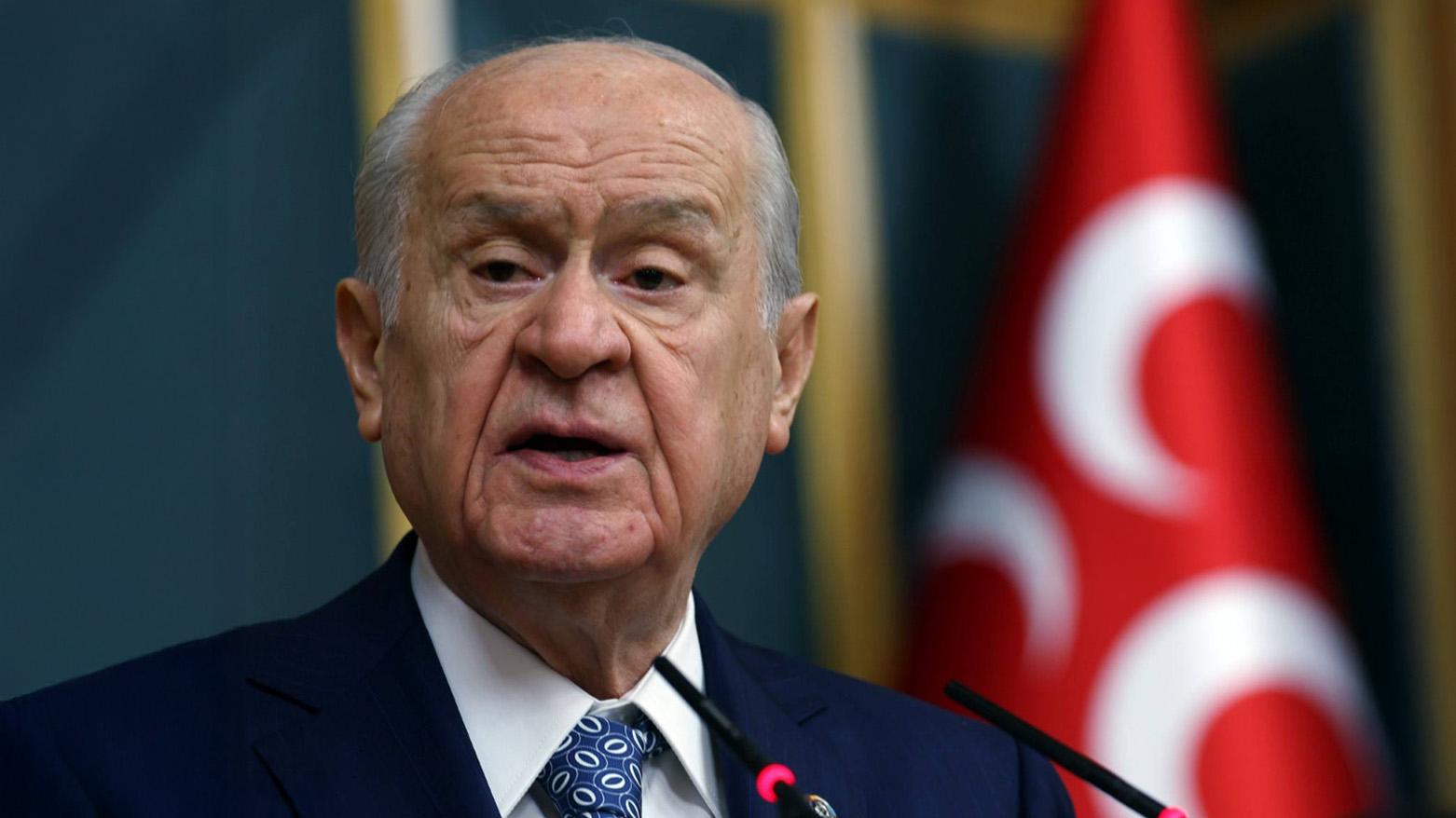Turkey’s MHP Calls for Immediate Disarmament of PKK, Affiliates
“The era of violence and armed conflict has ended. The goal of a terror-free Turkey is to rewrite its history and geography with peace and to design it with a spirit of peace and brotherhood," the MHP Chairman stated.

ERBIL (Kurdistan24) – Devlet Bahçeli, chairman of the far-right, ultranationalist Nationalist Movement Party (MHP), issued a statement calling for the immediate and unconditional disarmament of the Kurdistan Workers’ Party (PKK) and its affiliates, emphasizing that the era of armed conflict must come to an end.
In a message released on Sunday, Bahçeli stated, “The era of violence and armed conflict has ended. The goal of a terror-free Turkey is to rewrite its history and geography with peace and to design it with a spirit of peace and brotherhood.”
Bahçeli further stressed that Turkey will cleanse itself of terrorism, which has marked its history for 41 years, through national unity and determined actions.
He specifically pointed to the recent call from Abdullah Ocalan, the imprisoned leader of the PKK, as evidence that the organization must lay down its arms, dissolve itself, and surrender its weapons to the Turkish state.
On Thursday, Feb. 27, 2025, an Imrali delegation met with Abdullah Ocalan and subsequently read his message in both Kurdish and Turkish at a press conference.
Ocalan’s statement, read by Ahmed Türk, the dismissed Mayor of Mardin Metropolitan Municipality, declared that “The PKK was established when the path to democracy was blocked, and the language of peace and democracy needs to be promoted.”
In a historic shift, Ocalan asserted, “The PKK needs to disarm, hold a congress, and dissolve itself. I take responsibility for this decision.”
Bahçeli responded to Ocalan’s call by stating, “The call includes the PKK and all its affiliates. This is the demand of the organization’s leader himself, and the YPG must also respond to this call.”
The MHP leader warned that failure to disarm would lead to severe consequences, declaring that any armed group that refuses to comply “will pay the heaviest price.”
CHP’s Roadmap for a New Peace Process
Meanwhile, Özgür Özel, President of the Republican People’s Party (CHP), announced in a speech at the Turkish Parliament that his party has prepared a 20-point roadmap aimed at democratizing Turkey and ensuring the success of a new peace process.
The CHP’s roadmap includes several key initiatives aimed at strengthening democracy and human rights in Turkey. One major proposal is to end the practice of appointing trustees to replace elected Kurdish officials, ensuring democratic governance.
The plan also calls for the creation of a parliamentary commission to address the Kurdish issue and oversee reconciliation efforts. Additionally, the CHP advocates for reforming Turkey’s penal code and anti-terrorism laws to align with international human rights standards.
Another priority is safeguarding freedom of the press and expression while simultaneously introducing stricter penalties for hate speech.
Özel emphasized that all opposition parties, including the DEM Party, must support this roadmap to resolve the Kurdish issue effectively.
DEM Party Delegation to Meet CHP Leadership
In a major political development, a delegation from the Peoples’ Equality and Democracy Party (DEM Party), led by co-chairs Tülay Hatimoğulları and Tuncer Bakırhan, is set to visit CHP headquarters on Monday.
The meeting is expected to focus on Ocalan’s message, the peace process, and potential areas of cooperation between Turkey’s opposition parties.
The recent developments signal a pivotal moment in Turkey’s long-standing conflict with the PKK. With Ocalan himself advocating for the group’s dissolution, and Turkey’s major opposition parties seeking a political resolution to the Kurdish issue, the landscape of Turkish politics appears to be shifting toward dialogue and reconciliation.
However, with MHP’s hardline stance against the PKK and its affiliates, as well as the Turkish state’s long history of skepticism toward peace processes, the success of these initiatives remains uncertain.
As the next steps unfold, all eyes will be on the Turkish government, opposition parties, and Kurdish political movements to determine whether this historic moment will lead to a lasting resolution—or further division.
